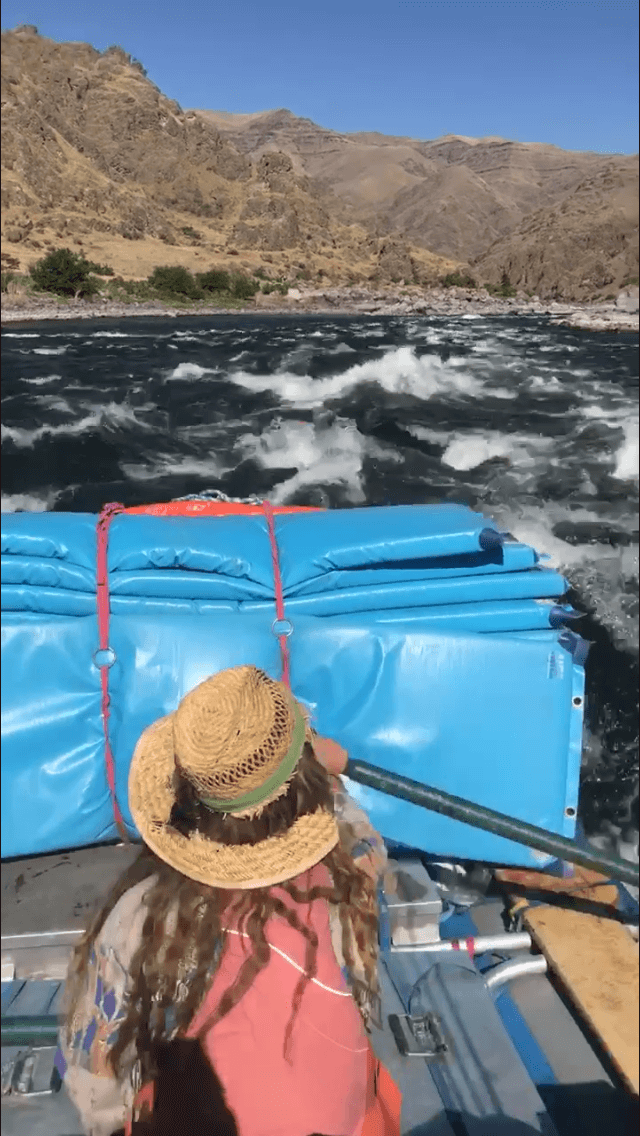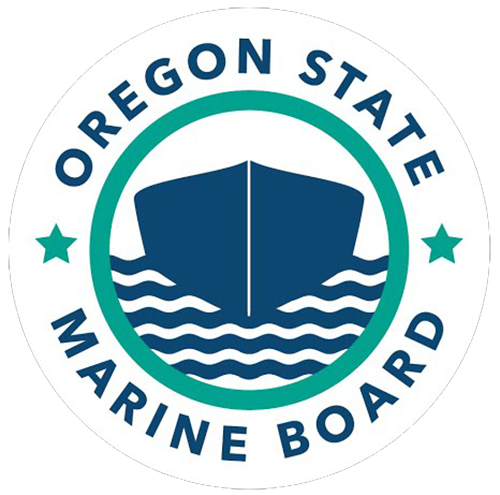How to Become a River Guide: Interview with Robin Pace
Have you ever thought about becoming a river guide but weren’t sure how to make it happen? Being a river guide is an exciting job that requires a certain mindset and technical training. To learn more about what it takes to be a river guide, we interviewed Robin Pace, one of our trip leaders, to learn more about how she came to be an experienced river guide on the Snake , Salmon and Grande Ronde rivers.
How long have you worked for WWRE as a guide?
It has been 6 years and I am coming into my seventh season. I started out as a swamper on the gear boat, helping to set up camp before guests would arrive that afternoon and moving gear.
How did you get into it? Why?
It was kind of like a post-college, quarter-life crisis. I didn’t want to go to grad school and I didn’t want to get a “real” job. I had come to visit a friend in Imnaha and she was reflecting on regretting never becoming a raft guide. It ignited a fire inside me. She literally dropped me off at the boathouse doorsteps to drop off my application. Every single person I talked to about it advocated for me to do it.
What was the interview process like?
I remember one of the questions on the application was “how do you feel about cell phones?” In my mind, I was like “it would be great to not need to look at one all the time anymore.” I went through a formal interview with Paul that was like any other job interview. He asked me about my background, personal strengths and weaknesses, and why I wanted to be a river guide.
What kind of training or certifications do you have?
First aid/CPR is the only training that is required to be a guide. Since my very first year as a guide I have had my wilderness first responder certification and I currently hold an outdoor emergency care certification. Both certifications are focused on advanced wilderness medicine and care. Many guides take swift water rescue courses but I took a 9-day river guide training program at Boise State University instead. It was catered to outdoor trip leaders that took students out but was also open to the community. I really wanted this job so I applied and took the course with my brother while I was still waiting to hear if I was going to be hired on or not.
The training was on the main of the Payette in May during spring runoff. It started the day after I graduated from BSU. I walked in the graduation ceremony and then jumped in a van in a wet suit heading to the river. I was the only person in the course that had actually planned on joining a rafting company however, my brother became a guide several years later. They made us jump into whitewater rapids and swim them. They also had us purposefully flip our boats in the river and then practice flipping them back over, as well as pulling people back into the boat.
What was your river experience before becoming a guide?
I had gone on a couple of 3-day trips on the Grande Ronde as a teenager, as well as a trip on the Deschutes with my dad and some friends at age 10. One time my cousin left me in a boat on a stretch of flat, but rocky, water on the Grande Ronde to go jumping on a duckie. I had no choice but to oar the boat. It made me vow to never do it again after hitting every rock in sight. It was a very humbling experience.
What potential dangers are there?
It’s so broad, so many potential causes of why things happen the way they do. Truthfully, it is mostly trying to manage what you can and trying to handle it as it comes. Usually, it’s helping guests with sunburns and hangovers. I’ve had people cut their feet open on rocks on rare occasions but watching out for dehydration in kids is a big one.
What kind of physical training do you do?
I found that working as a cook in the offseason worked really well — it really works your forearms. Also, nannying because throwing kids in the air is also a good workout. I know I need to do more push-ups because of the snowpack this year. In reality, the only true way to get in shape is by rowing. There is no way to prepare your hands for the first day back at the oars. I am fully prepared to have blisters on my hands after the first trip of the season because of the amount of snow we have seen this year.
How do you stay calm?
I try to be very active in talking about potential situations beforehand. Guests have always come back and said they were thankful for knowing what to do when they find themselves in the water. They simply just followed the instructions I had given before we got on the boats — it’s like explaining a fire drill. If something does happen, you can’t really be scared until it’s over. You’re in the flow state in the middle of all the action. It is likely the situations I describe won’t happen but you automatically just do what exists in your head. That’s why we have safety talks.
What do you know now that you wish you knew your first season?
Don’t stress about what is going to happen. It likely won’t happen or it won’t happen the way you expect it to. It’s usually little things that feel a disaster, like suddenly realizing that we forgot the toothpicks.
What is in your own personal dry bag?
I literally bring everything. Zinc sunscreen is a must. A big sun hat for myself and multiple hats for others because I might have made them swim and lose theirs — somebody always loses a hat. I always bring a flat sheet to sleep on and a river dress — they are so nice when you get to camp. Extra shoes, and by shoes I usually mean sandals.
What is the best advice you have received?
Double check the hose is attached before cleaning out the groover.
What advice would you give a first-time river guide?
Don’t take things too seriously. Don’t try to get it all right.
Get groovy with the groover.
Also, awareness is key. If you are being aware, you will know how you plug in best with guests, other guides and your environment. It allows you to see animals as well as not burn the brownies. Watching how other guides do things and how other people row helps you to understand how to do it too.
So, what do you think it takes to be a good river guide?
You basically just have to not mind getting dirty and enjoy living outside under the stars. The ability to cook in a Dutch oven is essential and you must be a storyteller — both for the guests’ benefit, as well as your own passing of time.









